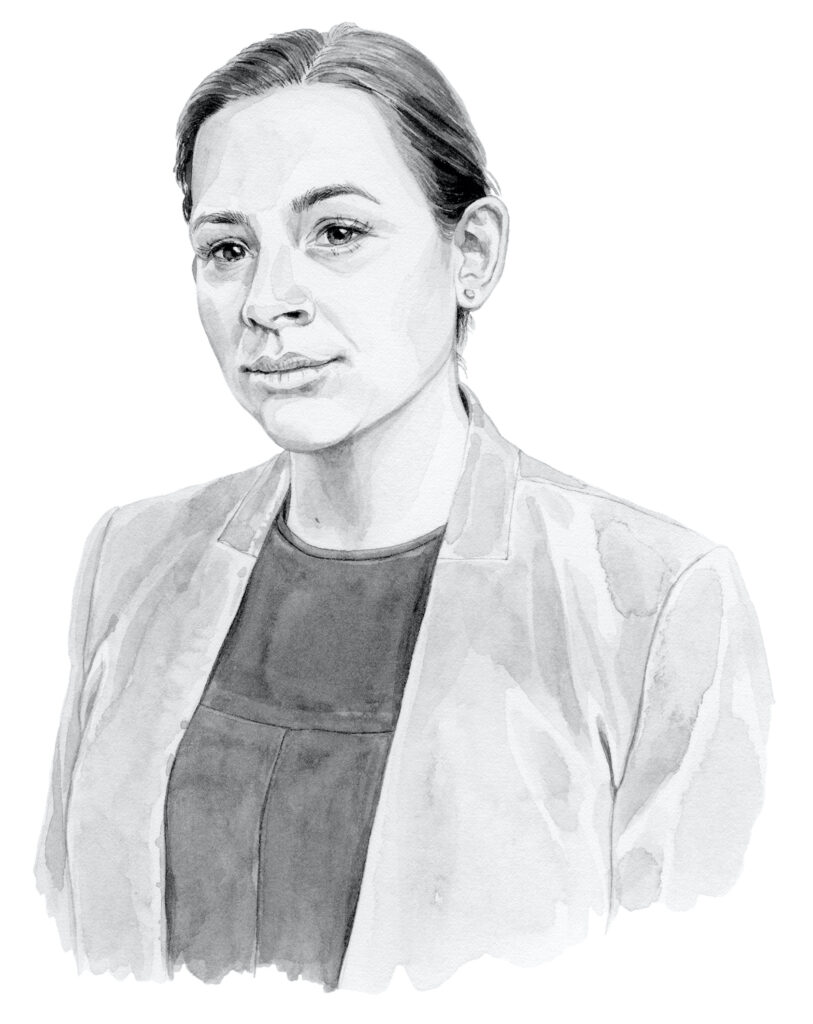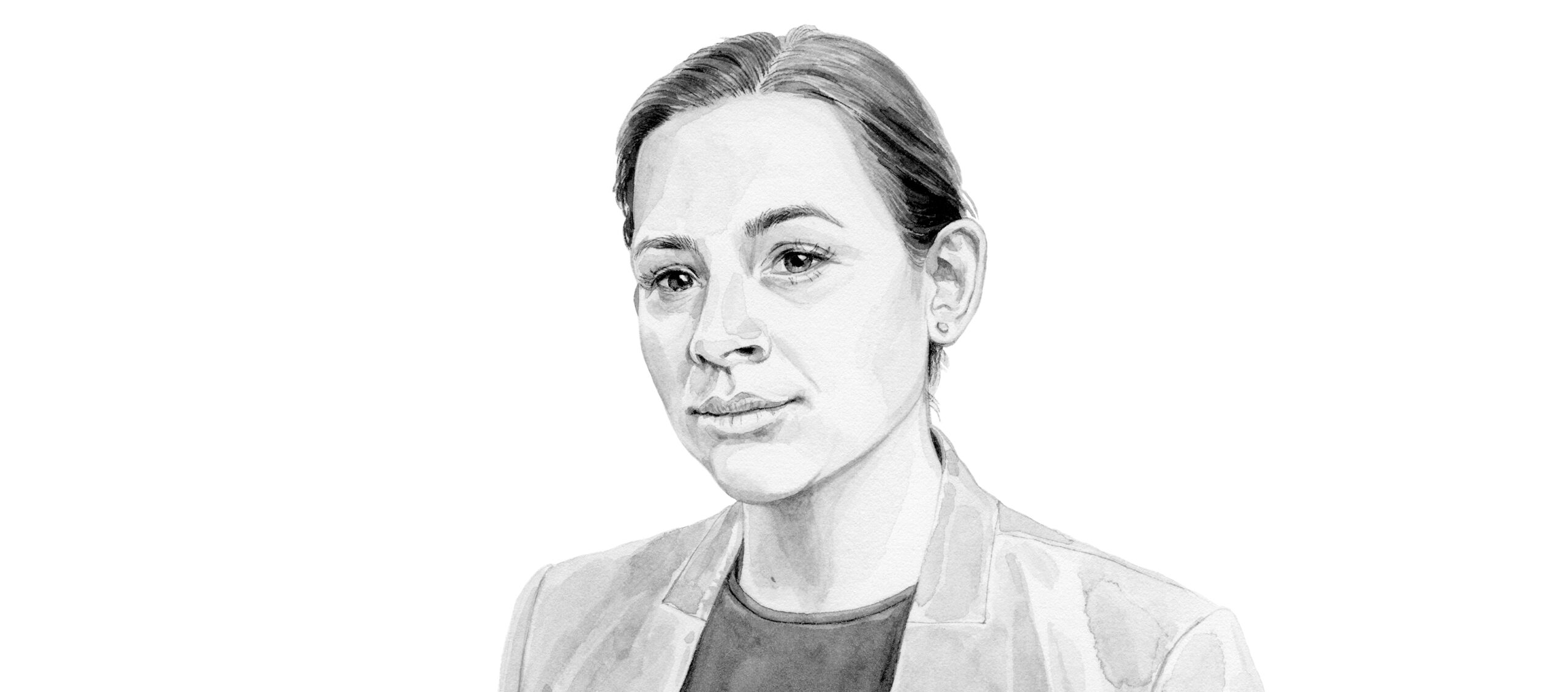In 2018, two years into her stint as tax litigation counsel for the Department of Justice, Bhuvana Rai found herself in a courtroom in remote Manitoba, defending a decision that had taken EI maternity benefits away from the mother of an infant. After tallying up how much the federal government spent on her time, her flight from her office in Ottawa, her hotel and her expenses, Rai, then in her mid-20s, realized it had cost more to fight the case than it would have to pay the benefits. It didn’t feel great. “Tax legislation is so opaque, and when it comes to these smaller cases, the average person rarely knows how strong their argument is or when to settle,” she says. “I think a substantial proportion of smaller taxpayers and self-represented people do not walk away from the tax system feeling like justice has been done.”
Taxpayers face a number of hurdles when they appear before the Tax Court of Canada. Unlike in other forms of law, the government is the respondent, and individuals—who are typically there to dispute how the Canada Revenue Agency handled a particular matter—are the appellants, so the burden of proof falls on them. Assumptions of fact, no matter how wild, are presumed to be true, a far cry from how it works in criminal law. And in smaller cases, the bench strength very rarely balances out. “I think the system is fairest when each side has a certain level of resources and understanding,” says Rai. Other than in cases that involve relatively wealthy people or institutions, “that’s just not the reality in tax.” This makes it all too easy for auditors to go after the lowest-hanging fruit: those with lower and middle incomes who don’t have representation.
“I kept watching people trying to fight perfectly reasonable cases and not having the procedural knowledge to navigate these rules,” says Rai. This realization played a large role in her decision to move from government to private practice, first at Borden Ladner Gervais LLP in Ottawa, as a senior tax associate, and then—when Toronto’s size and diversity beckoned—at EY Law in early 2021.
At larger firms, though, it’s hard to take on small files that might not make much, or any, money but would ensure ordinary taxpayers have someone in their court. She began to toy with the idea of starting something new.

Bhuvana Rai
Founder, Mors & Tribute P.C.
In April 2022, Rai launched her own firm, Mors & Tribute P.C. The name is a cheeky nod to life’s only two certainties—these are the Latin-based words for death and taxes—but it’s also very deliberately not her own name emblazoned on the door. “The point is that the firm is bigger than me,” she says. “It’s about the team and the vision.” (That team currently includes a law clerk who doubles as an administrative person. She also hired a law student over the summer.) Rai’s caseload moves between advising smaller, privately held corporations and acting for individuals or small-business owners who have disputes with the CRA. She helps people deal with issues like unfair audits and clawed-back CERB payments. The bigger files allow her to take on low-bono work on behalf of less affluent clients.
The job often asks her to serve as a sort of translator between taxpayers and the CRA. Every single audit of immigrants that she’s seen, for instance, requests corroborating information from an international bank—so Rai is left explaining geopolitics to a tax auditor, noting that corroboration isn’t possible for anyone emigrating from a country that Canada does not have banking relationships with, like Iran. And with her clients, she has to gently point out that the CRA isn’t calling them a cheat or a fraud or a terrible person—it’s just sending them a bill. “I really like trying to get very different people to understand each other,” she says. It comes instinctually: “My family arrived in Canada from Mumbai when I was 10, and as an immigrant, I’m always translating. Culturally, generationally, situationally, I’m always in code-switching mode.”
Erin Durant, an informal mentor to Rai since their time together at BLG, says that Rai makes the intricacies of tax law accessible to everyone—whether that’s clients or even lawyers like herself. “Bhuvana is so good at being able to explain a very technical and scary area of the law so that it’s understandable to the many, many of us who don’t have that underlying foundation,” says Durant, who now runs her own practice just outside of Ottawa. Rai is formalizing that foundation by building an online database that provides free legal information to self-represented litigants in tax law. She’s focused first on the disability tax credit, which she considers one of the hardest benefits to get. But she plans to expand to other programs like the child disability benefit.
Rai also recognizes that one person can only do so much to solve a systemic problem. In 2020, she co-chaired an Ontario Bar Association program that, in part, examined how the tax system disproportionately harms people from diverse backgrounds. “Tax is the area of law most of us will interact with, and at the end of the day, it’s an access-to-justice issue, even if it’s not a particularly sexy one,” she says. “I want this to be a problem we all solve together.”
But Rai never loses sight of the individual caught up in the system. When Filippo Cognigni, a wine importer in Toronto, retained her in 2022, he’d already spent six and a half years fighting an audit. “The CRA slapped me with an $80,000 penalty, but Bhuvana took one look and immediately saw what had happened,” he says. More specifically, she found that the limitation period had passed, a fatal flaw in the CRA’s case. “She was super kind, extremely competent and efficient”—so efficient, in fact, that she had the dispute resolved in his favour in less than three months. Cognigni still can’t believe the ordeal is over. “I never could have gone up against the government without her,” he says. “I call her my personal angel now.”
Bhuvana Rai’s career timeline
2001: A 10-year-old Rai arrives in Calgary with her parents from Mumbai, India.
2014: Having completed an undergraduate degree in philosophy at the University of Calgary, Rai graduates from law school at the University of Toronto. As a law student, she realized that a career in tax law, whose rules form a complex system of logic, might let her tap into her passion for philosophy.
2015: After articling at a civil-litigation firm, Rai is called to the bar. In the fall, she begins a clerkship at the Tax Court of Canada and a part-time master of laws program in taxation.
2016: Rai joins the Department of Justice in Ottawa as tax litigation counsel. Eventually, she becomes uncomfortable seeing so many taxpayers go without representation.
2018: Like hundreds of thousands of public servants, Rai had run into trouble with Phoenix, the federal payroll system that didn’t actually pay people—or paid people too much. “It stressed me out more than I could afford to be stressed out at the time,” she says. Due to that concern, combined with her growing dissatisfaction with the work, Rai moves to the Ottawa office of Borden Ladner Gervais LLP.
2021: Along with her spouse, Rai leaves Ottawa for Toronto, where she takes a job as a tax lawyer with EY Law.
2022: In April, Rai launches her own firm, Mors & Tribute P.C.
This story is from our Fall 2023 Issue.
Illustration by Melinda Josie.


